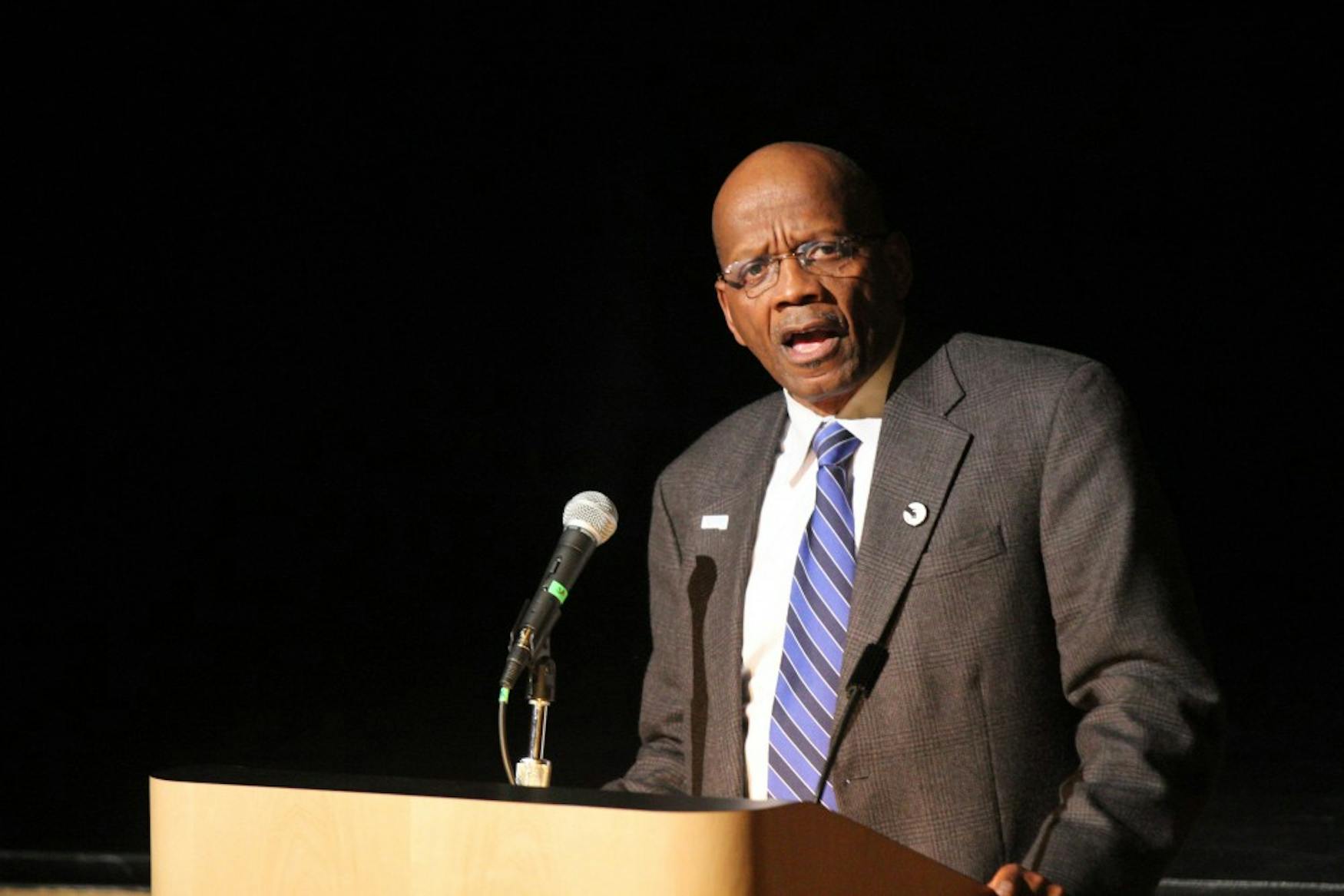Alumnus speaks about race at MLK memorial
Members of the Brandeis community gathered Monday night in the Shapiro Campus Center Theater for the University’s 10th annual Reverend Dr. Martin Luther King Jr. Memorial, which included various performances and featured a keynote address from Dr. Roy DeBerry ’70.
Dean of Students Jamele Adams began the memorial by reading out the names of all the African American people killed in acts of racism and brutality in the United States over the last year.
Adams then read two original poems, including one he called the “New Negro Nursery Rhyme for Black Boys.”
Prof. Chad Williams (AAAS) also spoke briefly, touching on both the prevalence of racism in America and the recent historical drama Selma (2014), which he will be discussing in a panel later this week.
“Brandeis, we have a lot of work to do … and part of that work is reclaiming the legacy of Martin Luther King, Jr.,” Williams told the audience. “Selma is now and Selma is here at Brandeis.”
During his keynote address, DeBerry—founder and Executive Director of the Hill Country Project, an oral history project that also focuses on education and economic support—spoke about his involvement in the Civil Rights movement. DeBerry also shared some stories on his experience as a Brandeis student, a time during which he said there were roughly eight students of color at the University. Additionally, DeBerry addressed the issue of racism in America, noting that Jim Crow continues to exist in the United States.
“[Jim Crow laws] can be seen in boardrooms, in courtrooms, … in the U.S. capitol and in those blue [police] uniforms,” he said. “There’s also an education system that’s leaving so many poor children unprepared for the world and unprepared for the future, but is custom-made to get them to the penitentiary.”
DeBerry added that today’s society spends too much time seeing only the obvious—race, gender, religion—and failing to register a person’s character.
“We don’t see each other. If we learn to see each other, to see that our cops are people like Officer Ramos and Officer Liu, to see that our community is filled with people just like them, too,” he said. “If we learn to see each other, then when we see each other, we’ll heal.”
Invoking the event’s namesake, DeBerry spoke about King’s nonviolent philosophy, explaining to the audience how they might fight racism in modern times.
“Dr. King and other freedom fighters fifty years ago knew that elected officials and government do not make … change; people do,” he said. “In a democratic republic, the people are the ultimate source of power. The vote is still a major source of power."
Additionally, DeBerry noted that while there has been progress in the United States’ development as an equal nation, that progress has cost the country many painful struggles.
“We have seen the evolution [in the United States], but the evolution has only been made possible through struggles: the civil rights struggle, the women’s suffrage movement, the anti-war movement, the gay and lesbian movement and many other movements,” he said.
Yet while DeBerry acknowledged there is still much work to be done to eradicate racism in the United States and other countries, DeBerry said he has hope that said goal might be accomplished sometime in the near future.
“I am so optimistic about your generation. I am so pleased with what I see, because I see such a positive change in your community. King would say—and I agree—everyone can be great, because everyone can serve,” he said. “However, freedom is not free. The struggle must continue on some level.”
The memorial also included performances and readings by students Wilkins Lugo ’17, D’Andre Young ’15, Cameron Mendes-Moreau ’15, Naman Patel ’16, Leah Staffin ’15, performer Makalani Mack '16, Brandeis staff member and gospel singer Louise Grasmere, Sean Fielder and the Boston Tap Company, the Kaos Kids and So Unique step team.
Adams and Rabbi Elyse Winick ’86 co-hosted the event, which was also sponsored by the Dean of Students Office and the MLK and Friends Club.



Please note All comments are eligible for publication in The Justice.